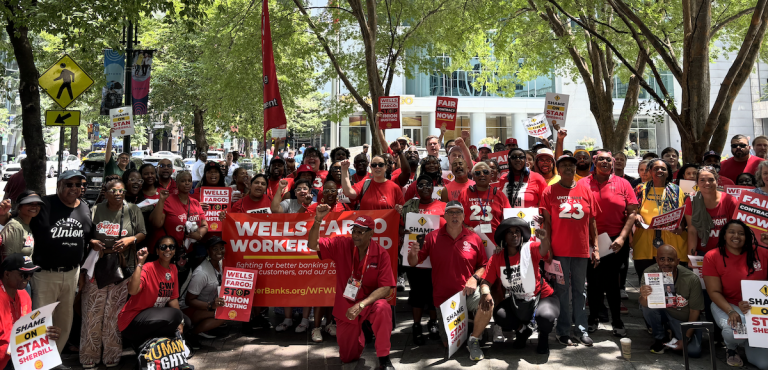Wells Fargo Workers Push To Bring A Union To The Banking Industry
Workers at Wells Fargo are organizing the first union at a major U.S. bank—in one of the least-organized industries in the country.
The first branch where workers won a union vote, in 2023, was in Albuquerque, New Mexico. Since then, workers have have voted to join the Communications Workers (CWA) at 29 more branches from Apopka, Florida, to Casper, Wyoming. So have 35 workers who review customer and employee complaints at the bank.
These workers, a total of 200, are a small fraction of Wells Fargo’s 217,000 employees. But their organizing represents the first formal union effort since the company’s founding in 1852. And their success is even more notable in an almost entirely non-union industry.















